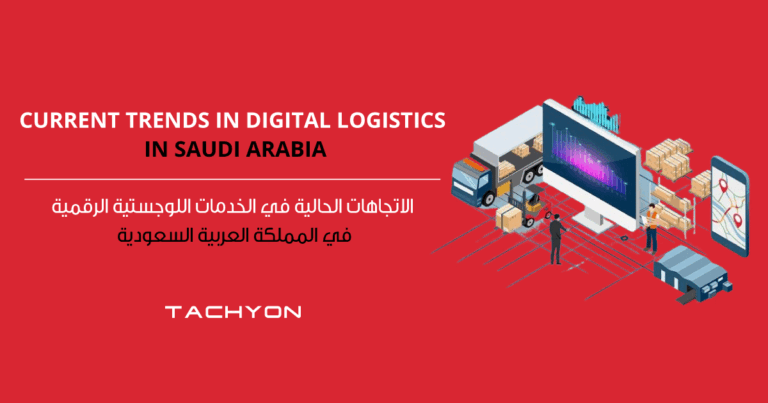
Contents
Technology has completely changed the industry’s logistical infrastructure. The ambitious aspects of Saudi Arabia’s Vision 2030 are the trends toward upgrading the logistics sector and creating a digital logistics ecosystem. To advance the sector, the government is working to create a comprehensive, digitalized, and contemporary logistics infrastructure. We’ll review some of the most recent and up-to-date developments in Saudi Arabia’s digital logistics industry in this article, transforming the country’s old conventional logistics frameworks.
AI Machine Learning
Techniques for AI machine learning have enhanced the working framework. The need for technology use in logistics is growing due to these technologies. They are spearheading operational excellence in the logistics sector in Saudi Arabia. The need for automation and forecasting is driving the demand for predictive analysis. This cutting-edge technology automates route planning and inventory management systems. Delivery delays and human mistakes have decreased thanks to data-driven and AI solutions. In the end, production and results have increased. Saudi Arabia’s competitive logistics enterprises have embraced technology-based logistics solutions to maximize efficiency and profit margins. Digitalizing logistics procedures is urgently needed to improve framework standards while saving time and money.
Blockchain Technology
Blockchain technology affects logistics operations and has a lot of potential. It has improved the supply chain management system’s security and transparency. This technology can record tracking and transactions in a tamper-proof ledger. Accurate data and analytics have simplified intricate supply chain tracking and logistical tasks. It strengthens the bonds between logistics players and helps prevent fraud. It can locate information and payment history within the database. Reliability and visibility are blockchain technology’s two most attractive advantages for logistics operations.
The Internet of Things
The supply chain infrastructure of the logistics sector is evolving due to the Internet of Things (LoT). The sensors and linked gadgets offer real-time tracking and monitoring data. In order to minimize delivery delays and disruptions, a proactive strategy involving this technology is required. You can provide prompt and efficient delivery by finding quick fixes for the problems. It makes supply chain management more transparent. Thanks to the Internet of Things, the entire logistics system can now be automated more quickly and effectively.

Supply Chain Agility
Commerce is developing faster than it used to due to the constant release of technological improvements and shifting trends in the supply chain. Organizations and their supply chains must adapt to the current digital landscape to remain profitable or develop. Logistics companies can achieve supply chain agility and maintain their competitiveness by utilizing self-managed onboarding, change management, and exception management.
With self-managed services, businesses may take complete control of their operations rather than relying on third parties to complete jobs. On the other hand, employees can start the onboarding process right away if your business manages its integration solution internally. Your organization can begin conducting business with your new client in a matter of hours because there is not an inventory of needs that need to be completed beforehand.
Automation
Automation may be very beneficial to modern organizations because it reduces costs, increases output, and frees up staff to focus on other, more productive tasks. Logistics companies can benefit from automation by establishing end-to-end links between backend WMS/ERP systems and the various eCommerce solutions that are gaining popularity. More data must be gathered as companies include more platforms and systems. Data is essential when it comes to making business decisions. However, the proliferation of platforms and applications suggests that the data is scattered across various locations.
Users must go between software packages to find and collect data, which is difficult and time-consuming. WMS/ERP and eCommerce integration can automatically collect and compile crucial data from several sources, significantly increasing your company’s dataflow efficiency. Following that, all of this data is gathered in one handy location, saving customers time while searching for pertinent data. The data is current as well because it is collected in real time.
Conclusion
Using logistical technology, the businesses develop cooperative working methods. They support the use of blockchain technology to modernize supply chain management. They use artificial intelligence and machine learning techniques for digital logistical operations. For it, they have access to a platform. Platforms for digital logistics offer technology-driven features and services. Logistics companies encourage the adoption of ecologically friendly practices through sustainability programs. It encourages forward-thinking logistics that are safer and more secure.
The Saudi government is working hard to plan and allocate additional funding to the logistics sector. It promotes foreign investment and trade. The full transition from traditional logistics to digital logistics is encouraged by the 2030 Plan. Through sustainability initiatives, logistics businesses promote the adoption of environmentally beneficial practices. It promotes innovative logistics that are more secure and safe. The Saudi government is putting a lot of effort into planning and providing the logistics industry with more funds. It encourages trade and investment from abroad.